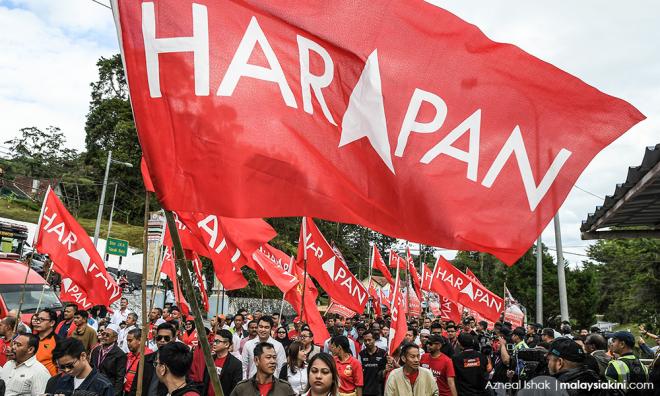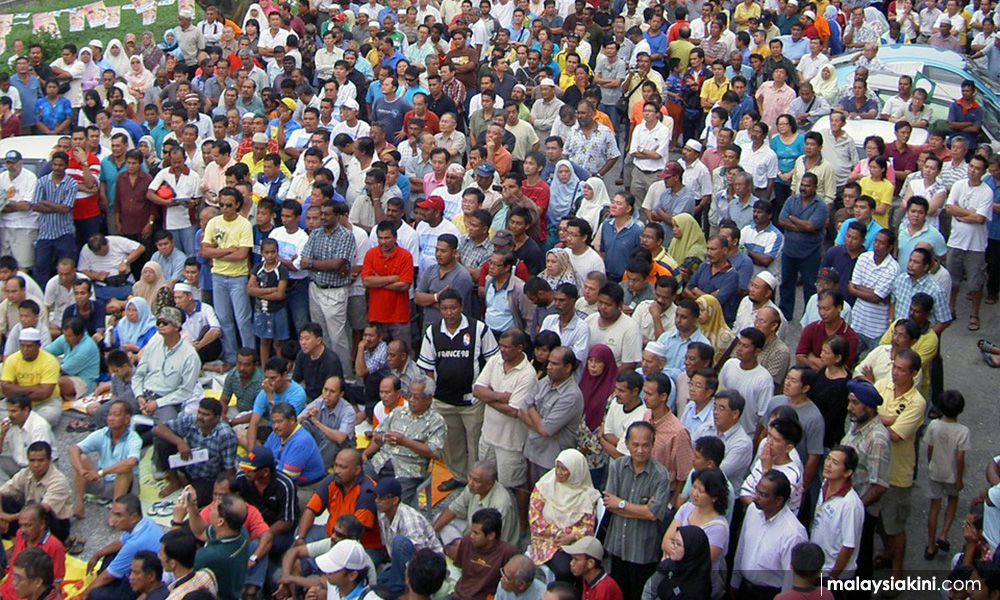
A poll conducted by Emir Research in the period just before the Sheraton Move that toppled the Pakatan Harapan administration shows that the Malay community had less confidence in the future under Harapan than its Chinese and Indian counterparts.
The poll was conducted from Jan 15 to Feb 24 involving 2,002 respondents comprising from all the states in Malaysia including Sabah, Sarawak and the Federal Territory.
Some elements of the findings were inconclusive, for example - when asked if their families' lives were better in 2020 compared to two years prior (which happened to be 2018 when Harapan took over), 32 percent said yes, 33 percent were unsure and 35 percent said no.
A racial breakdown, however, showed the same question revealed that 43 percent of Chinese and 38 percent of Indians had answered yes, while the Malay respondents who answered in the affirmative were just 29 percent.
Notably, a sizeable number of Malays and other bumiputera (84 percent) either felt that the country’s future direction is on the wrong track or was unsure about it. The breakdown for those who felt sure the country's direction was on the wrong track was 29 percent for Malays, 12 percent for Chinese and 16 percent for Indians.
In releasing the study, Emir Research confirmed that its original plan was to hold a media conference on the findings in early April. But while it was at the data-entry and analysis stages, the Sheraton Move took place and that was followed by the introduction of the movement control order (MCO) on March 18 in the wake of the Covid-19 crisis.
"Hence, the analysis of the findings in this current survey is relevant during the time when Haparan was still the government from January to Feb 24.
"The value of this survey lies in its predictive power in giving the various backdrops to the fall of the Harapan government.
"The higher sense of dissatisfaction among the Malays and other bumiputera provided the setting for politicians in Malay-based parties who sensed the timing was perfect to go for the jugular to hatch a plot for the demise of the Harapan government, which became a reality in the aftermath of the political crisis brought about by Mahathir’s resignation," it said.
Emir Research is a think-tank focused on research-based strategic policy recommendations. Its President/CEO is Bersatu council member Rais Hussin.

Interestingly, while Harapan is viewed as having a stronger urban base than its rivals, only 28 percent of urbanites felt their family’s life is better compared to two years ago. The corresponding figure for the rural dwellers was 40 percent – a significant 12 percent difference.
Similarly, 46 percent urbanites expressed confidence about living conditions in the future compared to 57 percent rural dwellers.
Swing towards Umno/PAS
Poll respondents were also asked: "If GE15 were to be held soon, among the following political parties which one would you vote for the parliamentary seats?”
Muafakat Nasional comprising Umno and PAS showed a 14 percent increase in votes to 52 percent in the current pole as opposed to 38 percent in the baseline poll conducted in December 2019.
Similarly, support for Harapan dropped 11 percent - from 41 percent to 30 percent - in the months leading up to the fall of the government.
As many as 18 percent expressed their support for independent candidates, signifying that the wish for the Third Force to govern Malaysia is still relevant, said Emir Research.
In an additional document, it showed its methodology for conducting the poll. This involved both qualitative and quantitative components.
Its focus group discussions involved a wide range of communities, particularly among the lower and middle-income voter groups.
These included padi planters (Kedah), housewives (Perlis), teachers (Pahang), Chinese Youth (Malacca), factory workers (Johor), Orang Asli (Selangor), Felda settlers (Pahang), taxi drivers (Kuala Lumpur), Sarawak bumiputera, Sabah bumiputera, Chinese businesses and Malay professionals (Perak), civil servants (Putrajaya), agriculturists (Terengganu) and students (Selangor).
Ultimately those surveyed were 53.4 percent males 46.6 percent females, 65.2 percent urban, 74 percent Malay and other bumiputera, 21 percent Chinese and 5 percent Indian.
Only 18.2 percent were degree holders, while those aged less than 31 made up the largest group surveyed at 37.8 percent. - Mkini



No comments:
Post a Comment
Note: Only a member of this blog may post a comment.